On April 17, 2025, David Stevens successfully defended his dissertation proposal titled “Cybersecurity Internship Impacts on Participant Professional Development and Employment: A Case Study.” Congratulations to Dave on this important milestone!
Abstract:
This case study investigates the effects of a unique Cybersecurity internship program at the University of Hawaiʻi (UH), specifically exploring its impact on participant professional development, personal growth, skills enhancement, and employment prospects. The internship, a collaboration between UH, the United States Naval Information Warfare Center (NIWC), and industry partners such as Core4ce and AdaptForward, expanded from Kapiʻolani Community College (KapCC) to include all ten UH campuses over four years.
Historically, internships have served as a bridge between theoretical academic learning and practical industry experience, providing critical soft skills, networking opportunities, and a conduit to employment. For the Information Technology (IT) and cybersecurity sectors, these programs are invaluable given the rapid technological advancements and the escalating need for a skilled cybersecurity workforce.
To assess the UH NIWC internship’s impact, this study will employ a mixed-method approach, leveraging a structured survey patterned after Anjum’s work on business and finance internships. The survey targets 46 graduates of the NIWC internship from 2020-2023 and gathers data on demographic information, motivations for participation, expected gains, professional development, and personal growth. Bandura’s Social Learning Theory guides the analytical framework, emphasizing observational learning, self-efficacy, and the importance of social interactions in learning.
This study will assess whether and how this internship enhances professional skills, clarifies career goals, and facilitates the practical application of classroom knowledge. Participants will be asked to report the internship’s impact on their communication, decision-making, problem-solving, critical thinking, personal growth, initiative-taking, conscientiousness, ethical behavior, and time management.
This research will attempt to highlight the critical role of well-structured internships in cybersecurity education by emphasizing the importance of integrating professional development activities with technical training to prepare students for real-world challenges. The results will provide valuable insights and recommendations for educators, policymakers, and industry leaders on the creation and enhancement of cybersecurity internship programs, ensuring they adequately support the evolving needs of the cybersecurity landscape.
Committee Members:
Dr. Scott Robertson (Chair, ICS)
Dr. Jenifer Winter (Communication)
Dr. Guylaine Poisson (ICS)
Dr. Rich Gazan (Library & Information Science)
Dr. Dan Hoffman (Learning Design and Technology)

